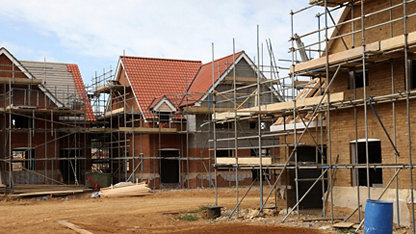Two features of economic life in the UK that provoke popular and political debate are housing and taxation. As individual topics, both are multi-faceted. However, combining the two appears to raise, rather than reduce, the number of issues for debate.
Housing remains high on the policy agenda, and over the past 15 years the government has commissioned no less than three seminal reviews considering housing supply (Barker 2004), mortgage markets (Miles 2004) and broader tax system reform (Mirrlees 2011).
This report examines three different aspects of housing taxation, in terms of their neutrality, fairness, transparency, efficiency and practicality. The first area is a property transfer tax (e.g. Stamp Duty Land Tax); the second is capital gains tax on residential property; the third is the interaction between taxation and the quality of the private rented sector. The report concludes with some key areas for further research.
Research was undertaken as part of a broader range of evidence reviews for the UK Collaborative Centre for Housing Evidence (CaCHE) and contributes to one of the seven themes of the Centre – Housing and the Economy. More specifically, the report considers the economic effects and incidence of selected forms of housing taxation, with a focus on both the UK and international experience.
Key takeaways:
- Transaction taxes are distortionary on a number of metrics, including local housing market mobility, incentive effects on downsizing and reducing transaction volumes. The evidence to date does not appear to support the contention that national labour markets are adversely affected by such taxes in a substantial way.
- Evidence on the effects of capital gains tax (CGT) is more limited, and in the UK much discussion centres on possible alternative methods of implementation. The general issue of the effect of CGT on assets is broad, including a wide debate about the general incidence of capital taxes, but in particular the effect of the tax treatment of housing as an asset in comparison to other investments.
One conclusion of this review is that there is scope for more applied research into the effects of specific taxes in the housing market. Differences in tax treatment across countries argue that evidence does not fully translate across borders. Recent advances in the handling and analysis of large datasets may mean that scope for further analysis exists, subject to proprietary data and privacy issues. The UK private rented sector appears to be one area where there are many dimensions of possible analysis but, as yet, few systematic analyses that are formally published.
As a consequence, this report suggests several possible areas for future analysis including how tax policy might improve the quality of the housing stock or make housing more affordable for certain groups in society, irrespective of tenure. In time, data from recent changes to transaction taxes in Scotland and Wales will allow for a comparative analysis on the effects of different systems on different types of buyers and sellers across the UK. Evaluating the process of transition from one tax system to another, and how any change could be achieved with a minimum loss, or gain, to overall economic efficiency, would be an additional area for innovative research.
More fundamentally, this raises the question of whether home ownership is good for the economy or society, and, if so, if there is a particular level of owner-occupation that policy makers should target. A richer evidence base would support a more thorough appraisal of potential policy options.
RICS is a coalition partner of CaCHE. Jeffrey Matsu serves as a Co-investigator to the Centre and leads its “Housing and the Economy” theme.
Published date: 25 September 2018
About the author

Jeffrey Matsu
Senior Economist, London, UK, RICS
Jeffrey Matsu is a Senior Economist covering global economic trends affecting real estate, property and land. He provides market analysis and thought leadership on key areas related to the world built environment.














